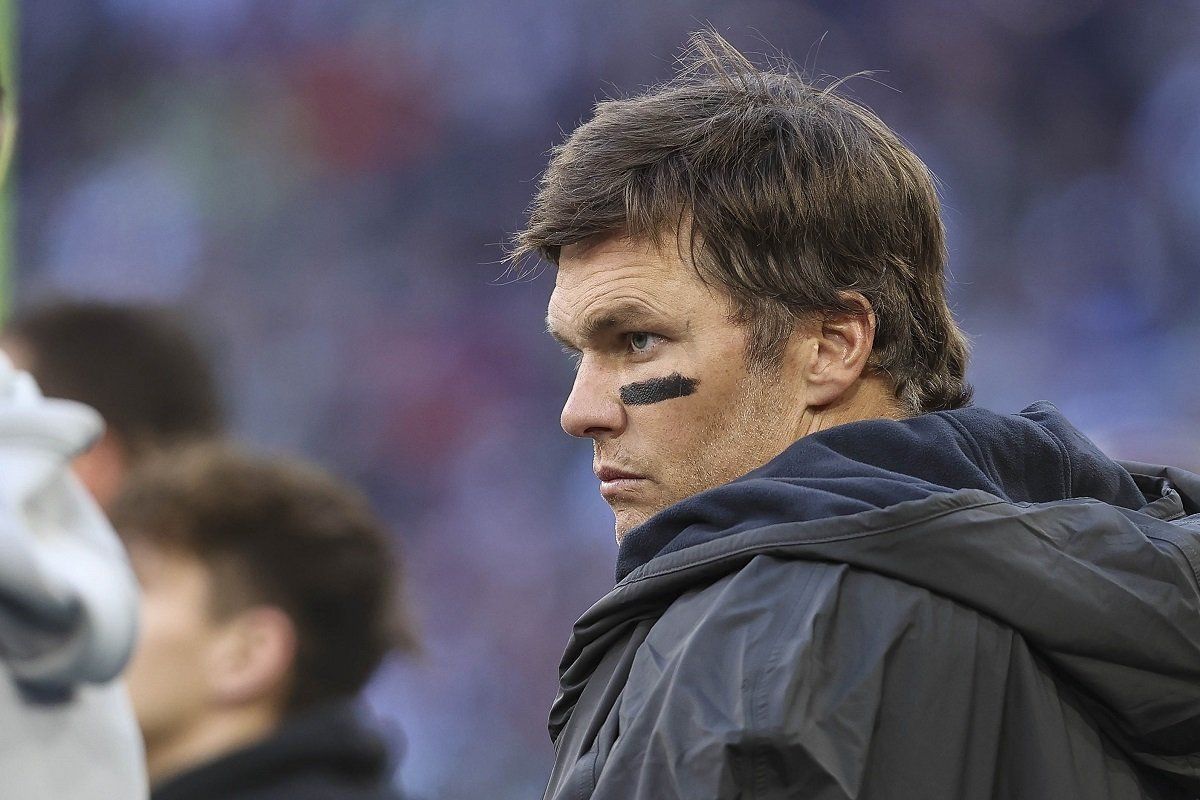
“How do we get our name out there?”
During an all-hands company call in December 2020 at the then two-year-old crypto exchange FTX, CEO Sam Bankman-Fried issued that challenge. “What are some big ideas?” he asked. Among the bigger notions that percolated during the ensuing brainstorm was, “How about we put our name on a sports stadium?”
FTX U.S.’s VP of business development Avi Dabir, who had spent some time working in digital media at the NBA a decade earlier, said, “I could look into that.” Three months later, in March 2021, FTX U.S. signed a 19-year, $135 million naming-rights agreement for the Miami Heat’s home to become FTX Arena.
This deal started an all-out blitz for the company to use sports as the fastest, most efficient way to try to become a household name. Within the last year, FTX has signed sponsorship deals to become the official crypto exchange of Major League Baseball. As a result, an FTX brand patch could be seen on every MLB umpire uniform. It became the official crypto partner of the Mercedes Formula One team, the official crypto and NFT partner for the Washington Wizards (NBA) and Capitals (NHL), and it forged an international rights deal with the Golden State Warriors. It also made a name-image-likeness deal with the University of Kentucky men’s basketball team. Then there are the direct relationships that FTX has made with individual sports stars, including Tom Brady, Steph Curry, and Red Sox legend and recent Baseball Hall of Fame inductee David Ortiz.
To become better known, FTX needed to stand out from the 300 other crypto exchange brands flooding the market, and in particular, the crypto industry’s already-established incumbents: Binance and Coinbase. Along the way, the sports push is also designed to dispel everything from the ongoing confusion relating to cryptocurrency to general mistrust of the industry. “Not only do we have to come in here and explain what cryptocurrency is, as an investment vehicle, as a technology on which to build future applications, and why it’s the future of the financial infrastructure, but we also have to explain to people that we are a good actor here,” says FTX U.S. CEO Brett Harrison.
“It’s very difficult to break through with that message,” he continues. “If we just take the slow, well-trod path of traditional marketing—digital ads, Facebook ads, Google ads—and slowly work on user acquisition that way, we’ll never overcome the bias against the industry.”
FTX and the crypto industry’s obstacle is the same for both prospective customers and sponsorship partners. It’s a similar challenge faced in years past by such brands as PokerStars, DraftKings, and FanDuel, when online poker and fantasy sports first took off in popularity. However the stakes for those product categories were much lower, given that both were positioned and hyped as entertainment rather than as a fundamental key to the next generation of banking and investment.
So far, FTX’s sports strategy has done just that, introducing both the company and its industry to a broader scale of people and writing a crucial chapter in the crypto marketing playbook along the way. The timing of the crypto push into sports was rather fortuitous, says Martin Conway, a sports business professor at Georgetown University. “Teams were down tens of millions of dollars, sometimes more, in terms of losses based on lack of audiences, canceled games, regional TV deals, you name it,” he says. “It was this perfect storm of the rise of a new industry and an insatiable need for more money.”
FTX’s deal with the Miami Heat triggered a flood of other crypto brands jumping into the increasingly open arms of interested players, leagues, and teams. Since then, Coinbase has become the official crypto partner of the NBA and WNBA. Binance hyped its Super Bowl ad with a teaser from NBA star Jimmy Butler and sponsored the African Cup of Nations soccer tournament. Crypto.com, of course, replaced Staples as the name on the arena of the Los Angeles Lakers, and then signed on both LeBron James , and star-studded soccer club Paris Saint-Germain as partners.
To Bankman-Fried’s point, perception is key. This is how FTX and its partners have made the leap together into selling sports fans on crypto, and leading both industries into a symbiotic, potentially risky marriage. As the Super Bowl looms—and with it the biggest stage yet for FTX, Crypto.com, Binance, and perhaps others seeking to convince the tortilla chip-eating masses that they need to put some money into crypto—we’ll get our next, best sign of the state of crypto and the future of the sports fan experience.
Couldn’t be more proud! Excited to celebrate history w/ my first NFT… The 2974 Collection. 2,974 unique art pieces. Bonus NFT for all minters – 8pm ET tonight! Join the community. All profits to charity. Exclusively with @FTX_US. @2974collection https://t.co/ElQtpmxtpm pic.twitter.com/N0XdBYJjtH
— Stephen Curry (@StephenCurry30) December 20, 2021
Bringing the Heat
Sports teams and leagues aren’t traditionally risk-takers, especially when it comes to stadium-naming rights, thanks to lessons learned from past mishaps. Remember PSINet Stadium ? Of course you don’t.
That’s why FTX’s Dabir says that the first questions the company faced from prospective partners were about the financial viability of the business. “Is crypto real? Explain the blockchain. How do you guys fit into the crypto industry? Just generally getting a sense of our business,” says Dabir. “In some cases, they dive into our numbers at a high level. People want to know if crypto is a fad or not. And more and more they’re realizing that it’s here to stay.”
Michael McCullough, the Miami Heat’s executive VP and chief marketing officer, says in their first meetings with FTX, it was quickly clear that FTX wanted to plant their flag in a big way, but wasn’t entirely sure just how to do it. What they did know was they were looking for a partner, not someone just looking to cash a really big check. “Putting your name on the building will get you a big splash, but that’s only part of this deal,” says McCullough. “A big part is activation, how we help make FTX a household name, how we replace the heritage of American Airlines who had their name on our building since it opened in 1999. This wasn’t just about slapping a name on the building and keeping it moving.”
Really was such a fun video shoot!! ????
And ICYMI, here was the final announcement video pic.twitter.com/BpTv9RXcuo https://t.co/tMYynWnAEB
— FTX – Built By Traders, For Traders (@FTX_Official) February 3, 2022
Having the Heat deal in Miami was monumental as a sports sponsorship debut. “Naming rights is the top of that (sports sponsorship) chandelier,” says Conway, the sports business professor. “They tend to be the most costly, they’re the splashiest. They’re going to get you King Kong awareness, and after that, how much customer acquisition or engagement you get is up to you.”
Activations during and around Heat games are as much about awareness as they are about promoting a certain image for FTX and crypto, more generally. “We wanted to make crypto less scary, and more accessible,” says McCullough, adding that he has a regular phone call with Dabir and his team at FTX every Tuesday. So far this season, some of these promotions include making game tickets into NFTs, as well as introducing “cryptocurrenseats,” which are 10 seats in the arena at every home game that have been remodeled with FTX’s brand colors. The people sitting in them get $200 of free crypto that they can activate on the FTX app. McCullough says that the day after the game, the promotion has an almost 100% conversion rate, with everyone in those seats are activating their FTX accounts. “You don’t get that for every in-game promotion,” he says. “You give somebody a free sandwich, not everyone goes to get that. With the FTX promo, it’s everybody.”
The FTX-Heat partnership quickly became a calling card for the crypto exchange. “I think when people saw the Heat were willing to get in bed with FTX, it gave them a check of legitimacy,” McCullough says. “People were calling and asking about it. We have a certain level of respect in our league and around professional sports that when we aligned with them, people saw them as legit.”
Driving crypto into the mainstream
The Mercedes Formula One racing team usually views speed at a premium, but its initial thinking was to sit back and wait a year to 18 months to see how the rush of new crypto brands shook out, says Mercedes Formula One commercial director Richard Sanders, and see who was left standing. But within two weeks of that declaration, Sanders says it became clear they had to make a move or miss out on a big opportunity. From there, it was about vetting potential partners. “I don’t think anyone would’ve predicted three years ago that one of the leading categories in elite-level sport was going to be crypto by 2021,” says Sanders. “I would’ve laughed. But it’s happened. The reason is partly that whomever gains the most market share, the quickest, will be the winners.”
Sanders says that there were tough questions when it came to evaluating potential crypto partners. The industry’s inherent decentralization, to avoid control by one central government or authority, isn’t ideal for a potential partner wondering where to call when something goes wrong. “FTX was definitely the best in that regard. But almost all of them, and I’m talking about the big ones—Binance, Coinbase—it was so decentralized by design, and we understand why, but it does bring up potential issues when you’re asking what happens if things don’t go well.”
Looking good, @FTX_Official ???????? pic.twitter.com/AFvXhazm79
— Mercedes-AMG PETRONAS F1 Team (@MercedesAMGF1) September 23, 2021
Mercedes Formula One team will be rolling out a number of FTX-related promotions this year, with special emphasis on a debut race in the crypto exchange’s hometown: the first-ever Miami Grand Prix in May.
Beyond the ‘big game’
The surge in sports sponsorship spending has paid off for FTX, so far. The exchange now has more than 1.2 million users, an increase of 11,900% in 2021, according to the company. In late January, FTX U.S. (the global company’s American division) secured $400 million in new funding , boosting its valuation to $8 billion. It’s capping off its big year in sports with a Super Bowl commercial, though no details have been released on what it’s about, or who may be starring in it.
Now, FTX isn’t cold-calling anybody. Moving forward, FTX U.S. president Harrison says that FTX’s focus on sport partnerships will be less about getting the brand name in front of your eyes, but its technology built into these organizations, whether that’s NFT tickets or setting up stadium payment infrastructure so users can pay for that new jersey with crypto. “When we first started, it was more like, okay, how do we get people to take our calls?” says Dabir. “Now people know we’re active in the space, so that’s flipped.”
Just after the company signed its NIL deal with the University of Kentucky’s men’s basketball team, the company hosted a Crypto 101 Zoom session with the players. Dabir says the young men were rapt, and sees them and their generation of players and fans as key to establishing crypto in the mainstream. “They pick it up very fast. Maybe they even skip the traditional way of doing things,” says Dabir. “Maybe there will be people who are natively crypto, if you get into it early enough. Maybe you never open a bank account, you just have a crypto wallet. Why not?”
Bankman-Fried has acknowledged that, if you look at the amount of money the company has spent over the past year on sports sponsorships, it’s tough to justify the immediate impact on its business. He told Decrypt’s gm podcast in January , “If you measure it by something like downloads per dollar spent on advertising, it’s not going to come out well. It’s just not going to look good by that metric.” But added that the push into sports, “has penetrated more than everything else we’ve done, combined, in terms of people’s perception of us.”
Harrison, though, is more sanguine. At the beginning of 2021, FTX was processing about $1 million a day in spot cryptocurrency volume. By November 2021, that was about $400 million a day. “Part of that explosive growth has had to do with our ability to immediately cut through the institutional inertia of staying with a trusted, existing large partner like a Coinbase or Kraken,” says Harrison, “and jump on with someone new, and that has completely to do with these marketing partnerships.”





